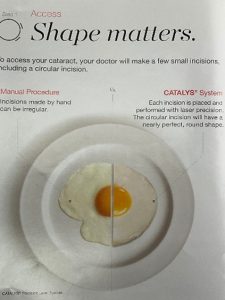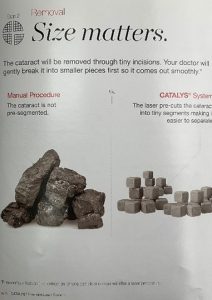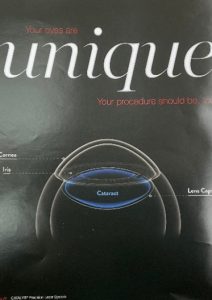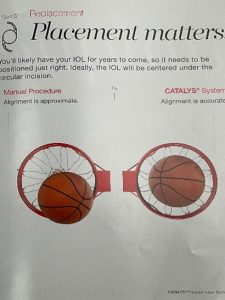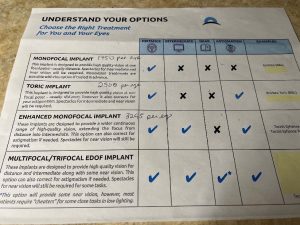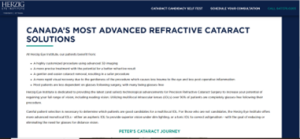RELEASE & BRIEFING NOTE: Patients Who Have Been Extra-Billed Thousands of Dollars in Ontario Private Clinics Join Advocates to Call Out Ford Government’s False Claims
Posted: February 27, 2023
(February 27, 2023)
Toronto – Leda Raptis from Kingston was charged $2,000 for an MRI at a private clinic. She needed the MRI for open heart surgery. When she looked at the bill, the clinic said the charge was for “contrast”. Either way, the two thousand dollar charge is illegal in Ontario and in Canada.
Leda was joined in a press conference this morning at the Ontario Legislature by Chris from Sarnia, who was charged $2,000 when she went to a private for-profit clinic for cataract surgery and then another $1,800 for a follow up surgery. Cathy from Niagara was charged $100 for a medically necessary liver scan at a private for-profit clinic. Judy Wolanski’s husband, from Sarnia, was turned down for hernia surgery from the private for-profit Shouldice Hospital because he had COPD and they told him to go to a facility better suited to deal with a potential medical emergency. He had his surgery as a day surgery in a public hospital without complications and with no extra charges.
These four patients joined advocates from the Ontario Health Coalition to call out the Ford government’s claim that their plan to privatize Ontario’s public hospitals’ core services – surgeries and diagnostics – would not result in extra user charges for patients.
“Doug Ford’s claims are patently untrue. They have been in government for five years and have never used their existing powers to crack down on private clinics extra-billing patients, manipulating them into buying all kinds of medically unnecessary procedures and tests, and violating the laws that protect public medicare,” said Natalie Mehra, executive director of the Ontario Health Coalition. “Why would any Ontarian believe this government? They have not once held for-profit health care corporations accountable so far, not even for negligence, death, illegal extra-billing and selling medically unneeded services to seniors.”
Under the Canada Health Act, patients are protected from extra-billing and user fees. Such charges are banned and all medically necessary hospital and physician services are covered by public medicare (OHIP). A patient cannot be charged for a medically necessary surgery no matter what facility performs it. Nor can a patient be charged for a needed diagnostic test. Private clinics cannot attach a medically unnecessary service to a medically necessary surgery or test in order to extra-bill patients. They cannot manipulate patients into paying by pretending unnecessary services are necessary. The Ford government could have fined the private clinics and doctors in violation of the Canada Health Act and Ontario’s Commitment to the Future of Medicare Act (2004). It has not done so and does not need new legislation to do so. It simply needs to actually enforce the law.
In fact, the Coalition reported that under the Ford government privatization of Ontario’s health care has expanded dramatically and user fees for patients have proliferated. The Coalition demanded that Ford stop the privatization of Ontario’s public hospitals, noting that virtually every public hospital in Ontario has operating rooms that are closed in the evenings, on weekends, for months or even permanently due to underfunding. (Ontario funds its hospitals at the lowest rate in Canada.) The Coalition called on the government to resource and use the capacity in our public hospitals to clear backlogs and improve access. For a fact checker and brief case studies of 20 patients who have been extra-billed thousands of dollars in private clinics in Ontario recently, please see below.
Click here for printable version of media release
Fact Versus Ford Government Claims: Private clinics in Ontario extra-billing, upselling & manipulation of patients
When the Ford government announced their plans to privatize Ontario’s core public hospital services to for-profit clinics and hospitals, they made a number of carefully crafted PR claims that were widely reported by the media. Last fall, while Ontario’s hospitals faced unprecedented burden of COVID-19, RSV and the flu and a staffing crisis, the Ford government conducted public opinion polling, including questions about privatization of our hospital care. In January, Premier Doug Ford made his announcement about moving forward with the privatization our hospitals’ services, framing it as a “necessity” to “clear surgical backlogs”, said “the status quo is unsustainable”, and said that Ontarians would “only ever pay with their OHIP card rather than their credit card”. The evidence does not support these contentions which appear to be crafted to sell privatization to the Ontario public.
Fact checker:
- The decision of the Ford government to privatize Ontario’s local public hospital services to for-profit clinics and hospitals is a political choice not a necessity: — a choice to hand over publicly funded contracts to people and corporations with whom, by his own admission, Doug Ford and his government have been meeting. Yet across Ontario, there are unused and under-used operating rooms and diagnostic testing capacity in our public hospitals that could clear backlogs and improve access if the government chose to do so.
Due to inadequate funding, in virtually every public hospital across the province, Ontario has operating rooms (ORs) that are closed in evenings, on weekends, for weeks or months each year, or even permanently. This is a policy choice, made to force the downsizing of public hospitals. Ontario funds its public hospitals at the lowest rate of any province in Canada and has downsized hospitals more radically than any other province. More recently, staffing shortages have also become a load-limiting factor. It is choice, not a necessity, for the Ford government to put the health care workforce under wage suppression legislation for years – even as staff are leaving by the thousands, to do substantively nothing to resolve the staffing crisis, to not fund public hospitals to capacity, and to leave units, floors and ORs shut down even while patients languish on wait lists. There is no actual need to build a whole second set of OR capacity in private clinics. There is no second staff force for private clinics. A nurse or an MRI technologist in a private clinic is a nurse or an MRI technologist who is not available to work in a public hospital. Where private clinics have opened in Canada, they have taken staff from public hospitals.
- The “status quo” is one that has been created by policy choices of successive governments (eg. draconian hospital bed cuts were imposed by the Harris government and never undone) but the crisis has been deepened significantly by the Ford government’s real-dollar cuts to hospital funding, its failure to use funding available to help public hospitals, and its policies that have actively worsened the staffing crisis. At the same time, the Ford government has dramatically increased funding and expanded for-profit clinics/hospitals.
Despite promising no significant cuts to public services, when it took office in 2018 the Ford government brought in real-dollar cuts to hospital funding and a whole array of additional health care cuts. Throughout the pandemic, the Ford government underspent Ontario’s budgeted COVID money by billions of dollars each year. Even as the staffing crisis in our public hospitals became extreme, in the most recent fiscal year the Ford government underspent on health care by almost $1 billion and maintained a wage cap on the public and non-profit workforce while at the same time significantly increasing funding for-profit clinics and hospitals (actually doubling the private clinics’ funding in the final quarter of the year, over previous quarters). Since the provincial election, the Ford government has continued to give significant increases in funding to the for-profits while keeping wage suppression legislation on public and non-profit health care workforce and while doing almost nothing substantive to address the staffing crisis. Finance Minister Peter Bethlenfalvy is repeatedly calling for ‘restraint’ and a return to austerity for public service funding such as health care, while they plan to keep expanding privatization.
- The premier’s claim that patients will not be charged extra fees in private for-profit clinics and hospitals is demonstrably false. Irrefutable evidence from Ontario and across the country shows the clinics extra-billing patients thousands of dollars for needed care in violation of the Canada Health Act. Despite having an array of powers to stop it, the Ford government has allowed patients to be unlawfully billed thousands of dollars in private clinics. In fact, extra-billing of patients for a widening array of health care including doctors, vaccines and COVID testing — which is illegal in Canada — has ballooned under the Ford government.
The Canada Health Act bans extra-billing and user fees for medically necessary hospital and physician services. Patients cannot be charged for needed surgeries and diagnostic tests. For a hundred years, communities across Ontario have built their local public hospitals and public health services. Yet, under the Ford government, there has been significant privatization in health care. Piece by piece, this government has handed over contracts to for-profit corporations for public and non-profit health care services.
The government has privatized public health functions to Shoppers Drug Mart, privatized COVID testing to for-profit companies and allowed them to charge patients for medically-needed tests in the midst of pandemic, allowed for-profit virtual care companies to charge patients for access to doctors and has not supported public alternatives such as funding for nurse practitioner-led clinics and support for Public Health.
In addition, the Ford government has failed to use the considerable existing powers they have to stop the proliferation of user fees, extra-billing and manipulative upselling to patients in Ontario’s existing private clinics while claiming that patients will only ever use their OHIP card. The following are case studies of patients, who, in the last few years have been faced with this extra-billing, user fees, upselling and manipulation in private for-profit clinics in Ontario.
Extra-Billing and User Fees from Ontario Patients: the Evidence
Note: the wait lists told to patients in these case studies are unverified and may be exaggerated in order to convince the patient to pay for the procedure (which is illegal). Ontario tracks wait times and patients can look up actual wait times here: https://www.ontariohealth.ca/public-reporting/wait-times
Patient 1: Lois – Private eye clinic, Newmarket
Cost: $8,435 plus $150 per check-up for Cataract, Macular Hole
The patient went to a private clinic in Newmarket which she describes the clinic as being “like a warehouse jammed with people”. She was diagnosed with a macular hole. She paid for the surgery and was told she had to rent special equipment for which she also paid. Two weeks later she was told she needs cataract surgery in the other eye, was never told that OHIP covered the needed lens, and was upsold an enhanced lens. She was then told she needs to have annual check-ups, which she did at a cost of $150 a check-up. At one of these check-ups, she was told she had floaters and needed a surgery to have them broken up, which she did. In total for the cataracts, macular hole and floaters she paid $8,435. At her next annual check-up, she was told she had a mass in one eye. Since each time she went for a check-up, she was told there was something wrong for which she had to pay, she began to ask questions. She says the ophthalmologist then told the secretary to charge OHIP for that visit. She then went to St Michael’s Hospital about the mass and was told did not have a mass in her eye.
Violations: Medically needed “check-ups” are a covered service and the patient cannot be charged for them. Medically needed surgeries are covered and the patient cannot be charged for them. Equipment needed for surgery is also covered and the patient cannot be charged for it. If a physician is trying to sell a medically unnecessary lens to a patient, they must give full information and the patient has the right not to pay. If the lens is needed, it should be covered under OHIP.
Patient 2: Carol – Private cataract clinic, Lindsay
Cost: $5,300 for cataract surgery, lenses and eye measurement tests.
In 2019, the patient was charged $5,300 for lenses, extra measurement tests and cataract surgery at a private clinic. She was never told that she had the option to have OHIP-covered cataract surgery with lenses and was told that her alternative to paying was to do an “invasive” OHIP-covered surgery in the hospital with a two-year wait.
Violations: Whether cataract surgery is done in a private clinic or a public hospital it is covered and the clinic cannot charge the patient for it. Similarly, the medically-needed lens is a covered service and the patient cannot be charged for it. The OHIP-covered surgery is safe, effective. Private clinics cannot manipulate patients into paying for medically unnecessary procedures.
Patient 3: Anonymous- Private eye clinic
Cost: $5,800 for cataract surgery, lenses and eye measurements.
In 2020, this patient went to a private clinic where she was charged $5,800 for upgraded lenses and additional measurements. The patient was told that she could wait “6 months to a year if I chose to get my OHIP covered service in a hospital.” She said she didn’t understand she could get OHIP covered surgery at the clinic. She was convinced she had to pay to get the surgery done because she needed to be able to drive to see her parents in long-term care. She was also given a brochure that presented OHIP covered surgery as very imprecise, dangerous and scary (see appendix).
Violations: Whether cataract surgery is done in a private clinic or a public hospital, the physician and the clinic cannot charge the patient for it. Similarly, the medically-needed lens is a covered service and the patient cannot be charged for it. The OHIP-covered surgery is safe, effective and physicians cannot manipulate patients into paying for medically unnecessary procedures.
Patient 4: Andy – Gender affirmation surgery at private clinic
Cost: $6,215 for gender affirmation surgery
The patient was told that if he chose to get OHIP-covered gender affirmation surgery he would have to wait 1 year as the “surgeon only did a few OHIP surgeries per year”. He was then told that if he paid for additional liposuction and chest contouring, it could be done in a month. The patient was suffering from suicidal ideation as a result of gender dysphoria so he paid $6,215 for the extra procedures.
Violations: A private clinic cannot attach a medically-unnecessary service to a medically-necessary service in order to charge a patient for the service. Medically-necessary surgery must be covered publicly – whether it is done in a private clinic or a public hospital — and the patient cannot be charged for it.
Patient 5: Fiona – Private eye clinic
Cost $6,000 for cataract surgery with required add ons
In 2019, this patient was told she needed to pay for upgraded lenses in order to avoid wait times of more than a year.
Violations: A private clinic cannot attach a medically-unnecessary service to a medically-necessary service in order to charge a patient for the service. Medically-necessary surgery must be covered publicly and the patient cannot be charged for it.
Patient 6: Chris – Private cataract clinic, Sarnia
Cost: $2,000 for cataracts plus $1,800 for dry eyes
The patient had her first cataract surgery at the Petrolia hospital and paid $200 for an upgraded lens. She then went to a private clinic and was told she had to bring her vision up to match her other eye, which would require her to pay for additional eye measurements and an enhanced lens. It was implied that if she did not pay for these upgrades, she would have a bad outcome so she paid $2,000. In her follow-up appointment, she was convinced to get a procedure to fix her dry eyes which cost $1,800.
Violations: Medically necessary surgeries are covered and the patient cannot be charged for them. Private clinics cannot manipulate patients into paying for medically unneeded services under the pretense that they are medically necessary.
Patient 7: John – Private eye clinic
Cost: $3,500 for cataract surgery
In 2023, this patient went to a private eye clinic. He was not informed that the medically necessary surgery was OHIP-covered and was instead told there is a two-year waiting list for the OHIP covered procedure if the patient doesn’t get the non-OHIP covered surgery at the private clinic.
Violations: Whether cataract surgery is done in a private clinic or a public hospital, the private clinic cannot charge the patient for it. The clinic cannot attach a medically unnecessary lens or procedure to the medically-necessary surgery in order to charge a patient for it.
Patient 8: Jacqueline – Private eye clinic
Cost: $7,000 cataract surgery with add ons
This patient was discouraged from using the OHIP “manual” cataract surgery method and was then sold upgraded lenses.
Violations: The private clinic cannot manipulate patients into buying medically unnecessary procedures and lenses in order to extra-bill them. They cannot attach a medically unnecessary lens or procedure to a medically-necessary surgery in order to charge the patient for it.
Patient 9: Janet – Private surgery clinic
Cost: $100 removal of bleeding growth
This patient went to a private surgeon who said she would have to wait to have it removed at the hospital for free or she could use electrolysis to have it removed immediately at a private clinic for $100.
Violation: A private clinic cannot attach a medically unnecessary procedure to a medically-needed surgery in order to charge a patient for it. Medically-necessary surgeries are covered and the patient cannot be charged for them.
Patient 10: Gayle –Private eye clinic, Kitchener
Cost: $2,590 cataract surgery with required add ons
In 2022, this patient was told that if she went for the OHIP-covered surgery it would be a long wait. She was never told that OHIP-covered surgery could be done at the private clinic, was upsold lenses and then had to have the cataract surgery done manually instead of via laser because she did not have enough corneal tissue for laser. In total she was charged $2,590 for her cataract surgery.
Violations: Whether the cataract surgery is done in a private clinic or a public hospital, the physician and the clinic cannot charge the patient for it. The clinic cannot attach a medically unnecessary lens or procedure to the medically-necessary surgery in order to charge a patient for it.
Patient 11: Jim – Private eye clinic, Burlington
Cost: $7,000 for cataract surgery
In 2021 this patient was told at a private eye clinic that the hospital was backed up for months and was not told that there was the option to have OHIP-covered surgery at the clinic. He was charged a total of $7,000 at the clinic.
Violations: Whether the cataract surgery is done in a private clinic or a public hospital, the physician and the clinic cannot charge the patient for it. The clinic cannot attach a medically unnecessary lens or procedure to the medically-necessary surgery in order to charge a patient for it.
Patient 12: Nol – Private cataract surgery clinic, Toronto
Cost: $1,155 for cataract surgery/enhanced lenses
In 2022, this patient was charged for enhanced lenses but thought they were paying for the cataract surgery.
Violations: Whether the cataract surgery is done in a private clinic or a public hospital, the physician and the clinic cannot charge the patient for it. The clinic cannot attach a medically unnecessary lens or procedure to the medically-necessary surgery in order to charge a patient for it.
Patient 13: Linda –Private eye surgery clinic, London
Cost: $6,990 for cataract surgery with add ons
In 2022, this patient was told that she would have to wait for 3 years to have OHIP-covered surgery done in a public hospital. She thinks she paid $127 per eye for upgraded lenses and the rest of the charges were for the cataract surgery.
Violations: Whether the cataract surgery is done in a private clinic or a public hospital, the physician and the clinic cannot charge the patient for it.
Patient 14: Sam – Private eye clinic, Windsor
Cost: $1,120 for cataract surgery with add ons
In 2018, this patient had to pay for extra eye measurements and $560 per eye for enhanced lenses to get his surgery.
Violations: The clinic cannot attach a medically unnecessary lens or procedure to the medically-necessary surgery in order to charge a patient for it.
Patient 15: Susan – Private eye clinic, Windsor
Cost: $1,580 for cataract surgery with add ons.
In 2018, this patient had to pay for extra eye measurements and $450 per eye for enhanced lenses. She was also charged an extra $200 for a dropless cataract surgery on her right eye. She did not understand that these were optional and did not notice a difference in her vision.
Violations: The clinic cannot attach a medically unnecessary lens or procedure to the medically-necessary surgery in order to charge a patient for it.
Patient 16: Tom – Private cataract clinic
Surgery/Diagnostic: Cataract
In 2018, this patient was told that the OHIP surgery is out of date and not precise. He was also told he had to pay fees for extra eye measurement tests and should purchase a better lens. As he was losing his vision he did not argue and paid.
Violations: The clinic cannot attach a medically unnecessary lens or procedure to the medically-necessary surgery in order to charge a patient for it.
Patient 17: Tom – Private surgery hospital, Toronto
Cost: Approx. $1,000 – $1,300 for premium room and extra nights for hernia repair
In 2022, this patient was referred to a private surgery hospital and went for a consultation. He was told that he would be in the hospital for 3-4 days to recover. He was told that he would pay $295 a night for a semi-private room. He told them that he does not have private insurance that would cover the semi-private room and wanted a basic room. They advised him that they do not have ward rooms and he would have to pay for the semi-private room. He was also told he would have to pay $82 for a COVID-19 test and parking. He could not afford that and decided to have the procedure at North York General Hospital, which required him to wait 2 months for his hernia repair. It was successful and he was discharged the same day without any problems.
Violations: A private hospital cannot require payment for an upgraded room (for multiple nights) in order to access the surgery. If there are no basic rooms available, they cannot require extra fees for a semi-private or private room. All medically-necessary COVID tests are covered and the patient cannot be charged for them.
Patient 18: Leda – MRI clinic, Newmarket
Cost: $2000 for an MRI
In 2022, this patient had to get an MRI for her heart to see if she would be able to handle open heart surgery. She was charged $2,000. On the receipt it was denoted as contrast dye for the MRI.
Violations: Medically necessary MRIs are covered and the patient cannot be charged for them, including extra charges for contrast, dye etc.
Patient 19: Cathy –Private diagnostic clinic, Niagara
Cost: $110 for a liver scan after transplant
In 2022, this patient’s doctor at Toronto General Hospital requisitioned a liver scan for follow up after a liver transplant. She was told that they only do those liver scans one day a week at TGH, so she found a local private clinic that does liver scans. In order to get the scan, she had to provide a referral as proof that the scan was medically necessary. She was charged $110 for the liver scan.
Violations: Medically necessary diagnostics are covered and the patient cannot be charged for them.
Patient 20: Marjorie –Private cataract clinic, Newmarket
Cost: $6,400 for cataract surgery with add ons
In 2022, this patient went to a private clinic where she was charged a total of $6,400 for cataract surgery and add ons. The patient was confused about charges. Upon review of the documents, it appears she was sold an upgraded lens and it was implied that she got a “package deal” which included the measurements.
Violations: The private clinic cannot manipulate patients into buying medically unnecessary procedures and lenses in order to extra-bill them. They cannot attach a medically unnecessary lens or procedure to a medically-necessary surgery in order to charge the patient for it.
Appendix 1. Examples of Upselling
Brochure Given to Patient:
Note: Cataract surgery is one of the safest surgeries with a commonly cited success rate of 98%. Patients being upsold a variety of different laser techniques are often not told that OHIP-covered eye surgery has an extremely high rate of success and is all that they actually need. Patients cannot be told that the OHIP-covered surgery is unsafe or inadequate in order to manipulate them into paying more.
Cataract Lens Price List Given to Patient:
Note: Medically necessary lenses are covered under OHIP. Patients are not required to pay for other types of lenses, and patients should be clearly told this information.
Private Clinic Website:
Note: All medically necessary personal consultations with a doctor and diagnostics are covered under OHIP (with Ontario’s world class surgeons and health professionals– all covered under OHIP). Cataract surgery has a very high success rate (98%) and patients cannot be told that the OHIP-covered surgery is inadequate or unsafe in order to manipulate them into paying for services. A private clinic cannot sell access to doctors or health professionals for medically-needed services. All consultations are private and personalized to the patient’s diagnosis.
Printable version of briefing note is attached



